It has been pretty convincingly argued that “That’s All Right, Mama” was the world’s first rock ’n’ roll song (and subsequently the soundtrack of countless tales of teenage rebellion from the 1950a onward).
However, should we be honoring the tune’s composer and first performer — blues singer Arthur Crudup in 1946 — or the song’s more famous interpreter, Elvis Presley, who introduced it to a wider world in 1954?
“Big Boy” Crudup, who started his blues career in the late 1930s in Mississippi, recorded his composition in Chicago on Sept. 6, 1946, incorporating some traditional blues verses first recorded 20 years earlier by Blind Lemon Jefferson. Released as a single by RCA Victor in 1947, the record was less successful than some of Crudup’s previous recordings.
Still, some experts today consider the Crudup recording to be the "first rock and roll song." Among them is Southeastern Louisiana University rock historian Joseph Burns, who notes this song even “could contain the first ever guitar solo break."
In early March 1949, Crudup’s recording made even more history when it was re-released as RCA's first rhythm and blues record on its brand new 45 rpm single format (hitting stores on bright orange vinyl, incidentally).
Enter Elvis
Meanwhile in Tulepo, fellow Mississippian Elvis obviously heard Crudup’s record.
On the evening of July 5, 1954, during an otherwise uneventful recording session at Sun Studio in Memphis, Presley began improvising an up-tempo version of the song during a break. Right away, Bill Black jumped in on string bass. The pair was soon joined in the jam by Scotty Moore's guitar.
Producer Sam Phillips, alert to the suddenly upbeat atmosphere, asked the three to start again so he could record it. (Elvis fans like to say that the resulting rendition is not identical to Crudup's because it was at least twice as fast as the original.)
Crudup was credited as the composer on the Sun label when the record was released days later as Presley's debut single. In 2004, a Rolling Stone magazine article argued Presley's recording is the first rock ’n’ roll record. Rebutting that claim in the same year, The Guardian characterized Elvis’s record as simply one of "the first white artists' interpretations of a sound already well-established by black musicians almost a decade before. It was a raucous, driving, unnamed variant of rhythm and blues.”
Take your pick. Meanwhile, despite legal battles into the 1970s, Crudup reportedly never received royalties for his work. An out-of-court settlement was supposed to pay him an estimated $60,000 in back royalties, but that never materialized. He died in 1974 without seeing the money.
Big Boy Crudup has been honored with a marker on the Mississippi Blues Trail. And for his part, Elvis acknowledged Crudup’s importance to rock ’n’ roll when he once told a reporter, "If I had any ambition, it was to be as good as Arthur Crudup.”
Our Take on the Tune
It was a grand and goofy night at the Bowen house last night, full of stories and wisecracks and ambling down wondrous strange new musical pathways, turning up numbers like this granddaddy of all things rock ’n’ roll that just came running out to greet us about mid-evening.

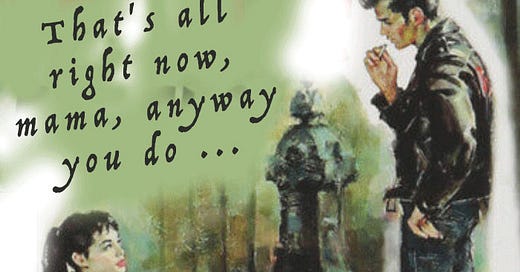



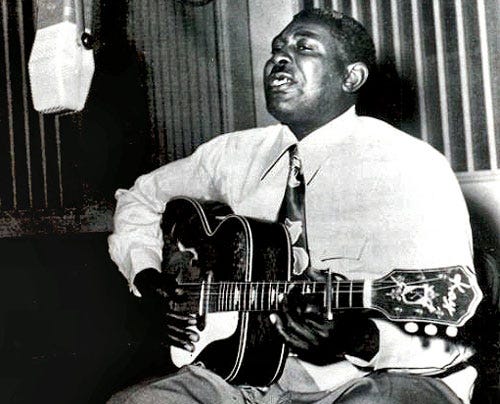
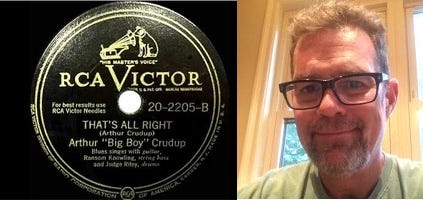
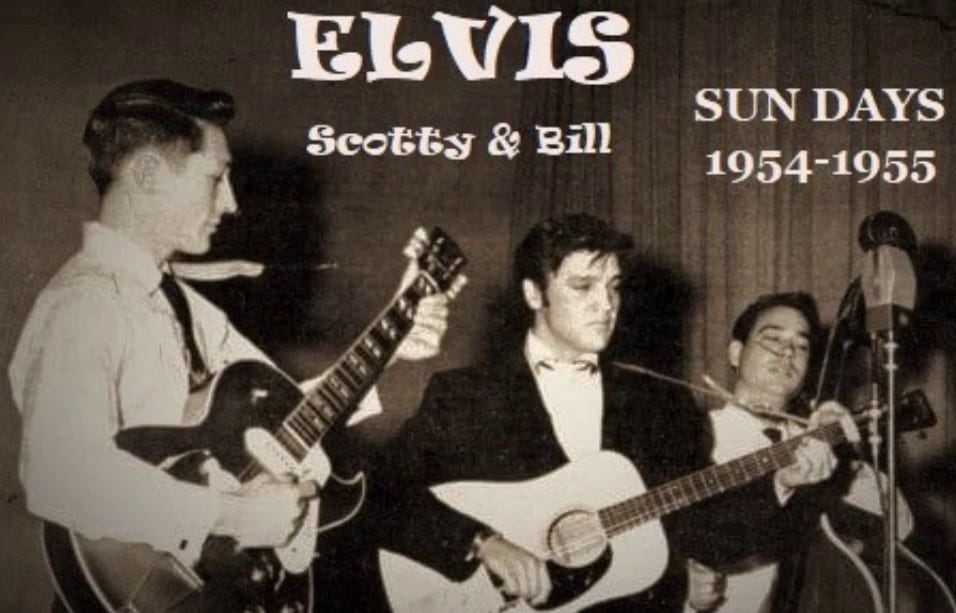
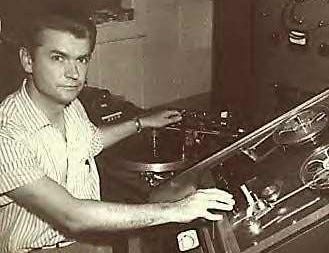
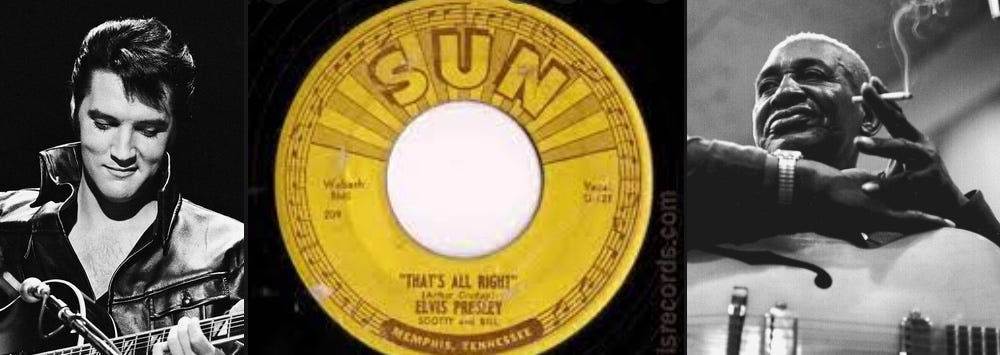
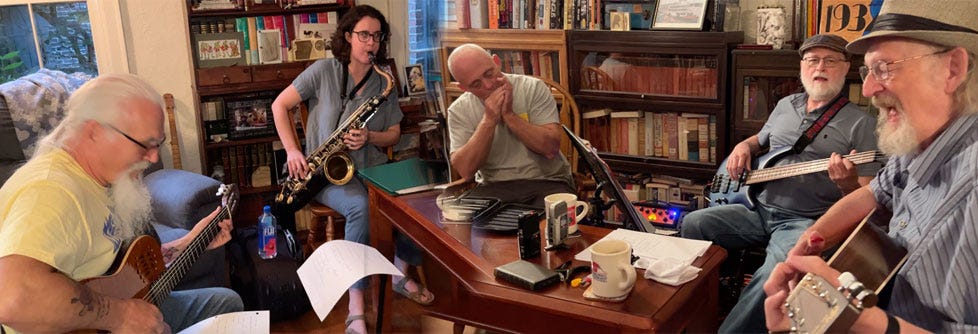









Share this post